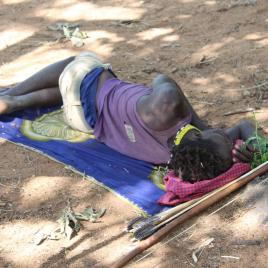An anthropological study of modern hunter-gatherers in Tanzania suggests that the difference in sleep schedules may be an age-old survival mechanism. The team observed daily lives of a modern hunter-gatherer community of the Hadza people in Northern Tanzania. After a day of procuring food, the Hadza, the young and old alike, gather to sleep in […]
Tag: anthropology
STIs promote monogamy, but only in certain instances
Sexually transmitted infections (STIs) may have helped foster monogamy in some human societies, according to a new study. Researchers found that when a society is large the prevalence of STIs becomes endemic, reducing fertility rates and favouring the emergence of monogamists in society. However in smaller groups, with a maximum of 30 people, STI outbreaks […]

Revising the age of the Hobbit
A new paper suggests that “hobbits” or Homo floresiensis (nicknamed the hobbit for its physical stature) lived longer ago than previously thought, and that they may not have encountered modern humans. Researchers used new chronological and stratigraphic information from the Liang Bua cave in Indonesia to make this claim. Previous dates suggested floresiensis used the […]
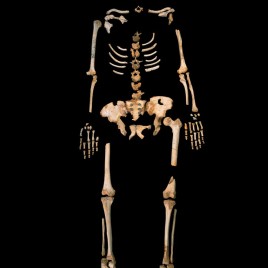
Filling in the family tree: The Sima de los Huesos hominins
Hominins found in the Sima de los Huesos (“pit of bones”) in northern Spain are more closely related to Denisovans than Neanderthals, according to genetic analysis. Until now it has been unclear how the 28 individuals were related to other hominins living during the Late Pleistocene. Analyzing the mitochondrial DNA lead the authors to conclude […]
Meat - The great evolutionary kickstarter
It was the addition of meat into the human diet, along with tool use, that could have contributed to our ancient ancestors’ improved speech and the ability to regulate body temperature, researchers suggest. In the past the cooking of food was thought to drive the changes in tooth size and facial features of our ancestors. […]
When humans and Neanderthals met
Ancestors of modern humans and neanderthals may have interbred 100,000 years ago, earlier than previously thought, according to new genetic analysis. Additionally the gene-flow may have been two way, with each population breeding and receiving genes from the other. Researchers analysed the genomes of a Neanderthal (from the Altai mountains in Central Asia) and a […]
Women and the empathic yawn
It’s called yawn contagion, the need to yawn when you see someone else yawning. Increasingly it’s recognized as an empathy based response. Now, new research not only supports that notion but has found that women are more likely to contagiously yawn, than men. The authors of the paper observed people for five years during their […]
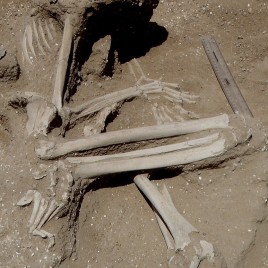
The first massacre in recorded history
Human remains reveal a rare instance of intergroup violence among prehistoric hunter-gatherers. Researchers found the remains of at least 27 people at a site in Kenya, including ten skeletons showing signs of blunt-force or sharp-force trauma to the head and/or neck. The remains, dating to 9,500 – 10,500 years ago were found with no signs […]

Ancient farming bee-haviour
Researchers have found evidence that humans have been gathering bee products, such as honey and honeycomb, for at least 9,000 years. The researchers examined residues preserved on thousands of pottery vessels from across Europe, North Africa, and Asia. The earliest evidence was found in pots from Neolithic sites in Anatolia, where Europe and Asia join, […]
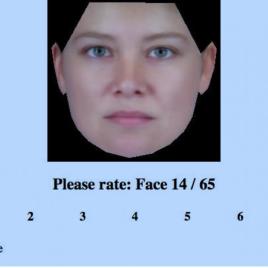
Beauty really is in the eye of the beholder
Beauty really is in the eye of the beholder, or at least partly, according to new findings. While there are indeed some universal aspects of attractiveness, such as symmetry, they believe that the uniqueness of an individual’s facial preferences is determined by experiences with friends and peers, past partners, as well as social and popular […]
Civilian deaths from weapons in the syrian conflict
Syrian children and women are disproportionately affected by explosive weapons in populated areas, and their use “should be urgently prohibited” according to the authors of a new study. These weapons include shelling, air bombardment, and car bombs. The research team examined over 78,000 civilian violent deaths that occurred in Syria from March 2011, to January […]
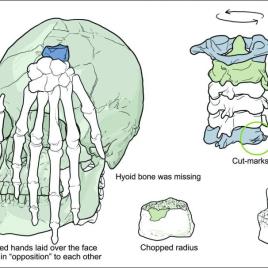
9,000 year-old ritual decapitation found
A 9,000 year-old ritualized decapitation may be the oldest case found in the New World, according to researchers, leading to a re-evaluation of the origins and geographic dispersion of the practice. The remains, a skull, two amputated hands, and several vertebrae, were found laid out in a way suggesting that they were likely part of […]
Amazonia has long been domesticated by humans
In 1492, Amazonia may have been home to about eight million human beings, challenging the 20th century idea of an undisturbed land, according to the authors of an interdisciplinary review. Amazonia was a major centre of crop domestication: at least 83 native species were domesticated, and at least 55 imported subtropical species were cultivated. Throughout […]

Oldest-known stone tools pre-date Homo habilis
Stone tools dated to 3.3 million years ago, discovered in Kenya, indicate that early humans were making tools much earlier than previously thought. The stone-tool culture associated with the genus Homo has commonly been dated back to around 2.6 million years ago, 700,000 years after this recent discovery. Researchers found markings on stone-made anvils, hammers […]
Language evolves faster in isolated populations
Changes in genetics and language follow similar patterns as human population disperse, however language is able to spontaneously change in isolated populations. Both genetics and language change over time as small mutations in genes or phonemes, like the ‘k’ sound in ‘cat’ or ‘skill’, accumulate or are lost. Additionally both language and genetics change by […]

Facebook could know you better than your spouse
If you have 100 or more Likes on Facebook then your computer believes it knows you better than the average person, and if you have 300 or more, then it believes it could know you better than even your spouse. Researchers analysed both individuals’ responses to a personality questionnaire and obtained information on Facebook […]
